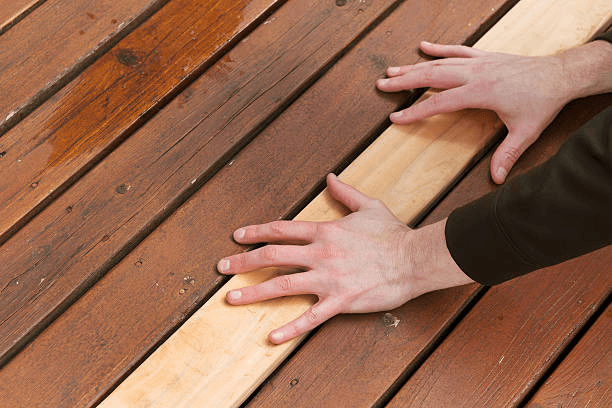When planning a new wood decking Vancouver project, one of the biggest decisions homeowners’ faces is choosing between cedar and pressure-treated wood. Both are popular choices in Vancouver for their affordability, availability, and durability. However, each comes with unique strengths and considerations, especially given the city’s wet, coastal climate.
This guide explores the pros and cons of cedar and pressure-treated wood, helping you make an informed choice for your deck investment. For more detailed decking services, see our wood decking options.
Understanding Vancouver’s Decking Climate
Vancouver’s mild yet wet climate presents challenges for outdoor structures. Decking materials must withstand:
Frequent rainfall
Seasonal temperature shifts
High humidity levels
Potential for mold and mildew growth
Choosing the right wood type means balancing natural beauty with weather resistance and long-term performance.
What is Cedar Decking?
Cedar is a naturally beautiful softwood prized for its rich color and pleasant aroma. Its natural oils provide resistance to rot, insects, and moisture.
Advantages of Cedar
Natural resistance to decay and pests
Attractive grain and warm tones
Lightweight and easy to work with
Cooler surface underfoot during hot weather
Disadvantages of Cedar
Requires regular sealing or staining to maintain color
Softer than pressure-treated wood, making it more prone to dents
Higher upfront cost compared to treated lumber
What is Pressure-Treated Wood?
Pressure-treated wood is lumber infused with preservatives under high pressure to resist decay, mold, and insect damage. It is one of the most cost-effective decking materials on the market.
Advantages of Pressure-Treated Wood
Affordable and widely available
Strong and durable against heavy use
Resistant to rot and insect damage due to chemical treatment
Can be painted or stained in different finishes
Disadvantages of Pressure-Treated Wood
May warp, crack, or split over time if not maintained
Requires regular sealing to extend lifespan
Less natural appearance compared to cedar
Chemicals may cause corrosion with certain fasteners
Cedar vs Pressure-Treated Wood: A Comparison
Feature | Cedar Decking | Pressure-Treated Wood Decking |
Cost | Higher upfront cost | More affordable option |
Durability | Naturally rot- and insect-resistant | Chemically treated for resistance |
Maintenance | Needs staining/sealing every 1–2 years | Requires sealing to prevent warping |
Aesthetic Appeal | Warm tones, attractive grain | Plainer appearance, can be stained |
Comfort | Cooler underfoot in summer | Can heat up and splinter |
Environmental Impact | Natural, biodegradable material | Uses chemical preservatives |
Which Option is Better for Vancouver Homes?
Both cedar and pressure-treated wood are viable for wood decking in Vancouver, but the choice depends on priorities:
Choose Cedar if:
You value natural beauty and aesthetics
You prefer an eco-friendly option
You are prepared for regular maintenance
Choose Pressure-Treated Wood if:
You want a budget-friendly solution
You prioritize durability in high-traffic areas
You don’t mind the look of treated lumber with stains or paint
Tips for Maintaining Wood Decking in Vancouver
Regardless of your choice, proper care ensures your deck lasts longer:
Clean the surface regularly to prevent moss and mildew buildup
Apply sealant or stain every 1–2 years
Check for cracks, splits, or warping
Ensure good ventilation and drainage under the deck
Use rust-resistant fasteners to prevent corrosion
Conclusion
When weighing wood decking Vancouver options, both cedar and pressure-treated wood offer unique advantages. Cedar provides natural beauty and eco-friendliness, while pressure-treated lumber offers affordability and strength. The right choice depends on your priorities for budget, aesthetics, and long-term maintenance.
If you’re ready to explore decking options tailored to your Vancouver home, contact us today start planning your project.
Trusted expertise from PREMIER SUNDECKS ensures your deck is built to last in BC’s coastal climate.
Frequently Asked Questions (FAQ)
1. How long does cedar deck last in Vancouver?
With proper maintenance, cedar decking can last 15–20 years, even in coastal climates.
2. How long does pressure-treated wood last?
Pressure-treated decks generally last 20–25 years with regular sealing and upkeep
3. Is cedar decking more eco-friendly than pressure-treated wood?
Yes. Cedar is a natural material, while treated wood contains chemical preservatives.
4. Can pressure-treated wood be painted or stained?
Absolutely. Staining or painting can improve aesthetics and extend the wood’s lifespan.
5. Which decking option requires less maintenance?
Both require regular care, but pressure-treated wood may need extra sealing to avoid warping.
6. Which option is more comfortable in Vancouver’s summer heat?
Cedar tends to stay cooler underfoot compared to pressure-treated wood.

